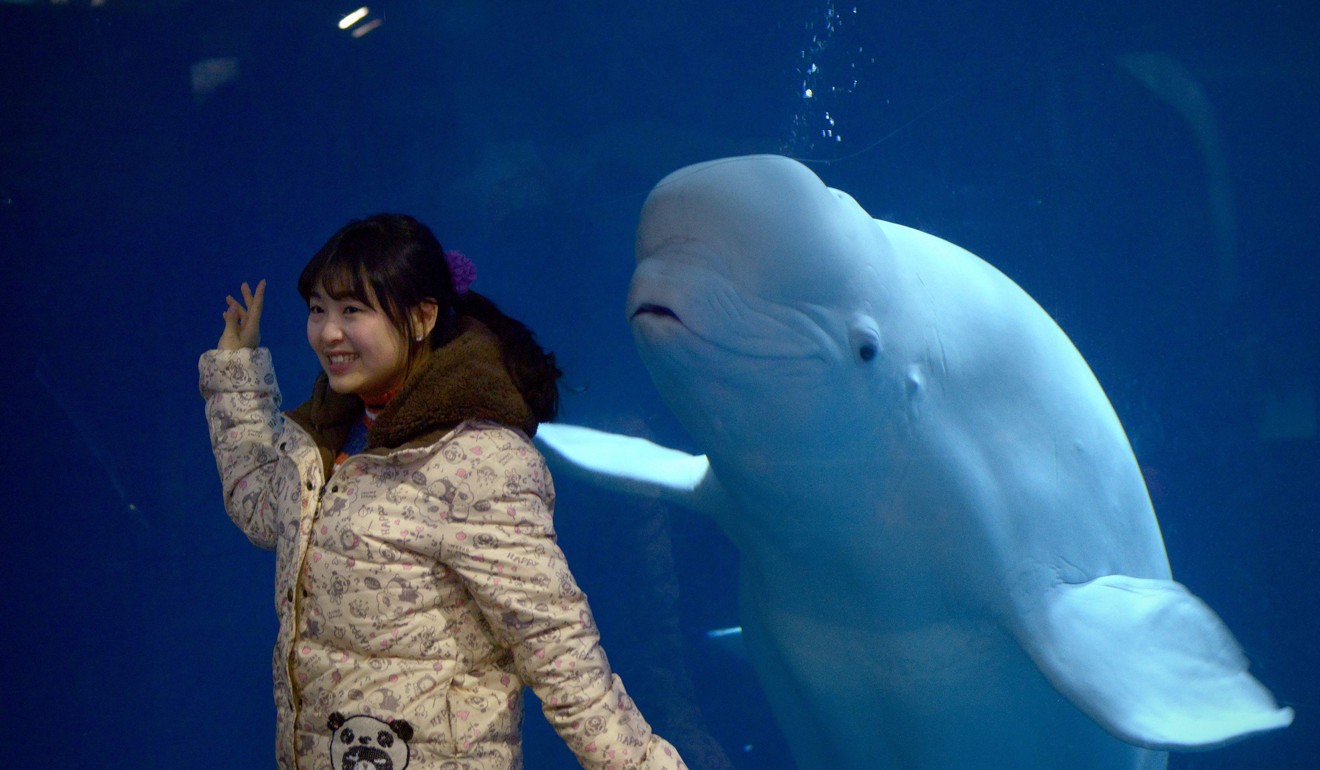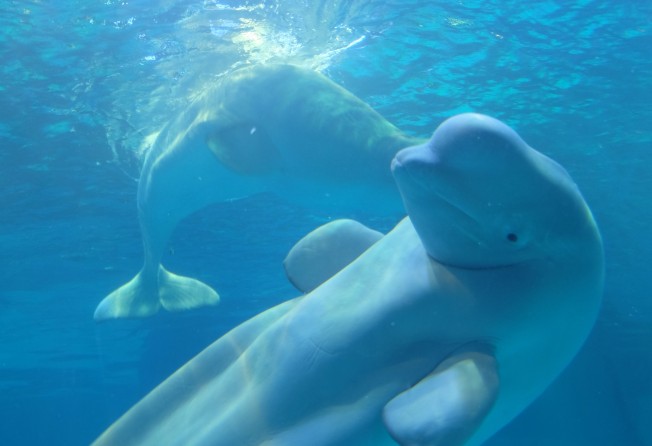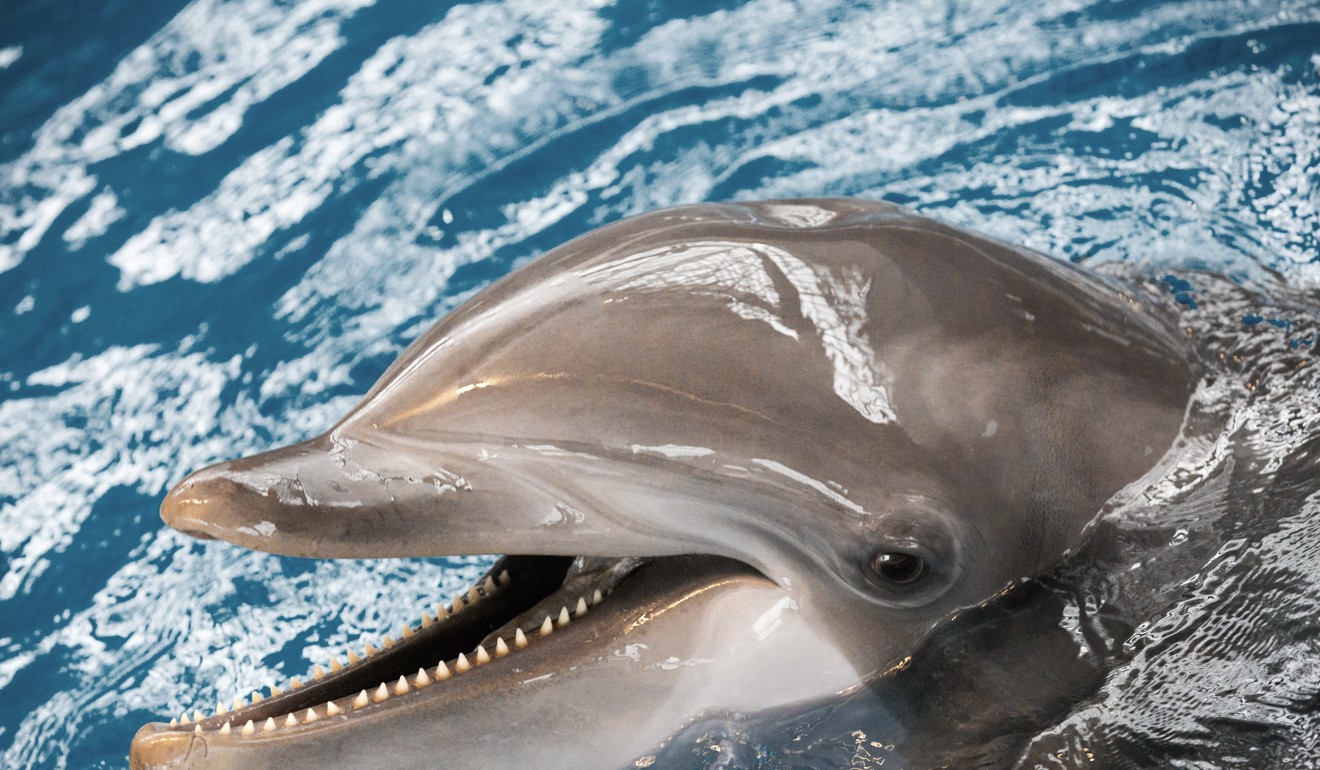
There’s nothing cute about a whale wearing lipstick, or keeping marine mammals in captivity
Jason Baker says those entertained by an amusement park employee in China putting lipstick on a beluga whale should understand that keeping marine mammals in captivity at all is harmful to their mental and physical well-being

If there were any doubt that marine-mammal parks exist solely to entertain humans and not to serve any educational or environmental benefit, a video that recently went viral on Douyin cleared that up. In the since-deleted clip, a worker at Sun Asia Ocean World in Dalian is shown smearing lipstick around the mouth of a beluga whale before “dancing” with the animal in the water.
Stupid stunts like this make it clear that these parks view the animals they hold captive as nothing more than props to exploit for money. Yet belugas are extremely intelligent and social beings. Some scientists even believe they may be the smartest animals on Earth. They convey information to their pod members through a language of chirps, clicks, whistles and squeals. They can also change the shape of their large, bulbous foreheads to make different facial expressions, which are believed to play a role in communication.
They're impressive athletes, too, diving as deep as 600 metres in search of food in their ocean homes. During spring and autumn migration, huge pods swim long distances together to and from Arctic waters.
But in marine-mammal parks such as Hong Kong's Ocean Park, Guangzhou's Chimelong Ocean Kingdom and SeaWorld (which is looking to set up shop in Hainan), these curious, energetic animals can do nothing but circle the same small, barren tanks day after day. While tourists come for an afternoon, buy some souvenirs and then go back to their jobs, schools, hobbies and families, the belugas, dolphins and other animals imprisoned in marine parks never get to go home or see their families. After years of captivity, they'll die in those tanks, but not before slowly losing their minds from the lack of freedom and mental stimulation.

To meet the demand of the growing number of marine parks in China, many of these animals have been violently captured from their ocean homes, mainly off the coasts of Japan and Russia, and sold to Chinese parks – a traumatic, devastating experience for them and their entire pods and a threat to free-living populations of belugas, who are listed as a near-threatened species.
Captivity simply can't come close to meeting the complex needs of cetaceans such as belugas, orcas, and other dolphins. In captivity, these animals often suffer from compromised immunity and display atypical behaviour patterns, including self-harm and aggression towards humans and each other, particularly if they're housed in incompatible groups, which they often are. Many destroy their teeth by chewing on the sides or steel divider bars of their tanks – one of the few ways they can pass the long, lonely hours.
In their natural homes, belugas may live for 60 years, but in captivity, they often die before they turn 30. A beluga at SeaWorld Orlando named Nanuq died after fracturing his jaw during an “interaction” with two other whales and later contracting an infection. Miki – a beluga who spent nearly his entire life in captivity, mainly at Chicago's Shedd Aquarium, and was forced to participate in the “North American beluga whale breeding consortium” – died after suffering from a prolonged illness. Dozens of other belugas have met early deaths in their bleak tanks.

It doesn't have to be this way. Sun Asia Ocean World and other parks across China that hold marine mammals captive can follow the lead of the US National Aquarium in Baltimore, which has announced plans to send the eight bottlenose dolphins held there to a sanctuary.
Until businesses stop keeping animals in intense confinement, forcing them to perform confusing and meaningless tricks, painting their faces like clowns and exploiting them in countless other ways, people who care about animals' well-being should stay far, far away.
Jason Baker is PETA’s vice-president of international campaigns
J